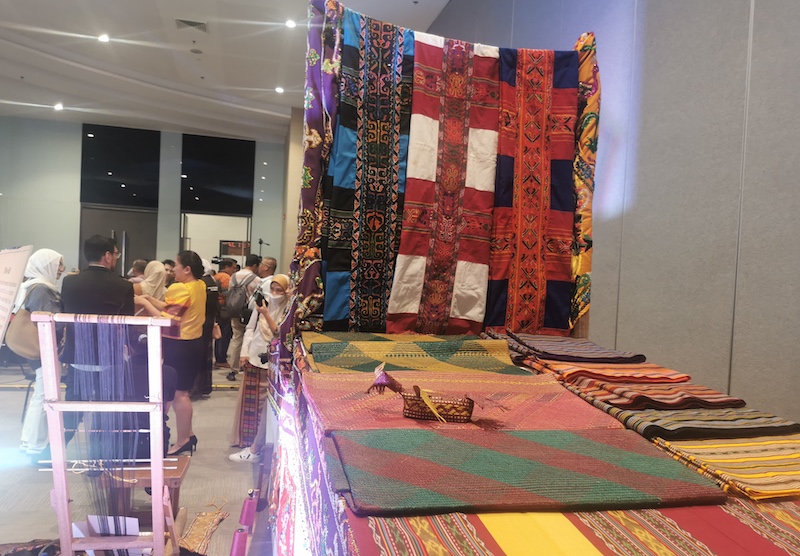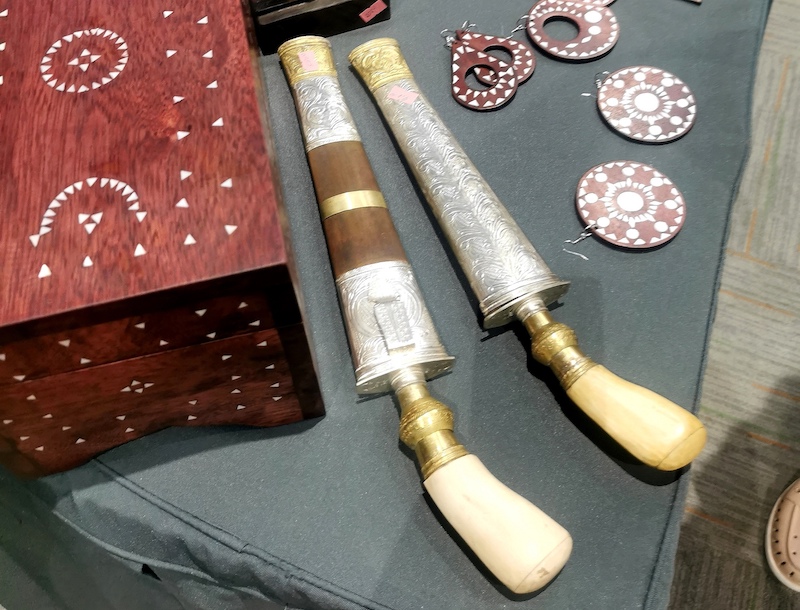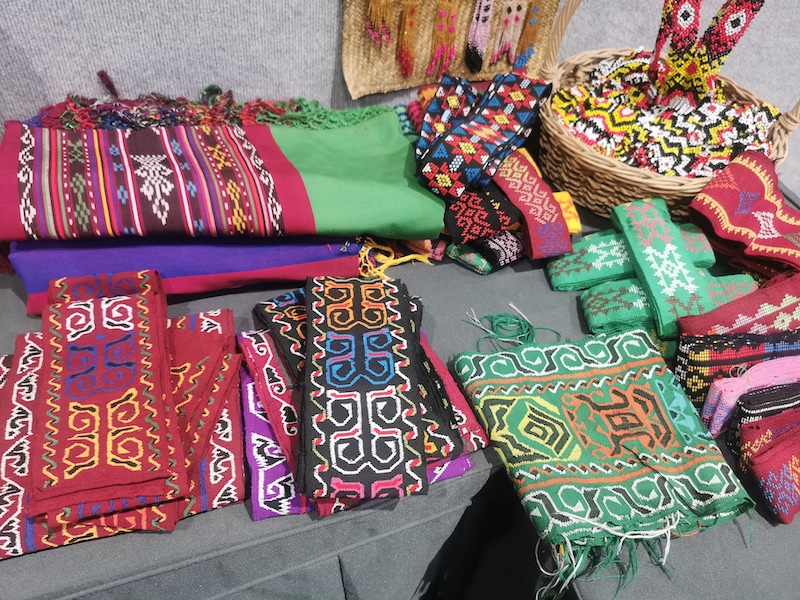CAGAYAN DE ORO (MindaNews / 21 April) — Where are the Okir carvers of Lanao del Sur?
When he has a big order these days for baur (baul or hand carved wooden chest with elaborate Okir motifs and inlaid with tipay or polished shells), master woodcarver Lantong Pangcoga says it has become difficult to find anyone to work at his workshop in Tugaya town, Lanao del Sur.
“I have to look everywhere for someone to work in my shop,” Pangcoga told MindaNews, explaining that the young artisans in his town now prefer to work in shops selling mobile phone gadgets in Marawi City.
Okir is characterized by intricate geometric and flowing designs often seen in Meranaw art forms such as architecture, woodcarving, weaving, brasswork. It is also commonly used to design mosques, houses, furniture, and traditional Meranaw clothing such as malong.
The 5th class munipality of Tugaya, is considered Ground Zero of Meranaw culture and the arts. There are workshops in almost every house making gongs, drums, chests and tapestries.
It also the center of brass making for trays, beads as well as malongs with intricate Okir designs.
Rosslaini Alonto-Sinarimbo, Director General of the Bangsamoro Autonomous Region in Muslim Mindanao’s Ministry of Trade, Investments and Tourism (MTIT) said they are fully aware of the diminishing interest of the youth to learn the Okir and other forms of Meranaw art, citing the internet and pop art as their greatest threat.

“This is the reason why we are constantly looking for platforms to display our arts and culture,” she said.
The MTIT mounted from April 16 to 18 “Okir Art Exhibit: Tales of Marawi” at the SM Downtown Premier here, displaying Meranaw artworks like baur, tapesties, paintings and jewelry accessories inspired by Okir designs.
Sinarimbo said the exhibit aimed to ignite interest among the younger generation of Meranaws as well as the rest of the country on the Okir as an art and heritage of the province of Lanao del Sur.

For Sinarimbo, the Okir “links our people to the land and the lake, making it an essential part of who we are and where we live. As we exert every effort to rebuild and reconstruct the buildings and structures that serve as our home and shelter in Marawi City, we must re-establish and assert the intangible but no less important cultural links that anchor us to our land.”
“Our history and heritage may not take the form of steel and concrete but they form the foundations of our people’s strength and identity,” she said.

MTIT Minister Abu Amri Taddik said they hope the exhibit would make the audience appreciate the artistic tradition of the Meranaws.
The exhibit had three themes — Okir a Bai (Queen’s Art) featuring the creations of langkit weaver Saadira Shiek Basmala, Okir a Datu (King’s Art) featuring the woodworks of Lantong Pangcoga, and The Future: Okir and Visual Arts featuring the paintings and calligraphy artworks of Architect Edris Tamano.
Other Okir-inspired accessories, clothing, and souvenirs were also on display. (Froilan Gallardo / MindaNews)



